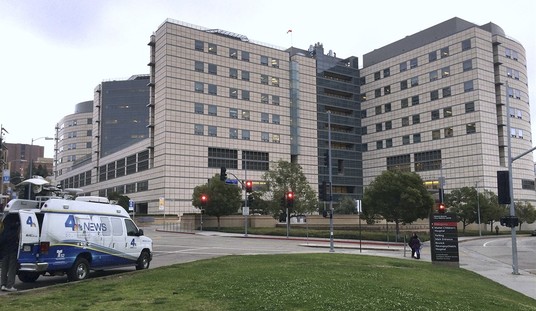Margaret Thatcher once famously pointed out the core problem of socialism: “They always run out of other people’s money.” California has been intent on demonstrating exactly what Thatcher meant with its highly progressive income-tax system that relies heavily on hitting the higher-income earners to fund their government. As the state has been discovering for the past few years, it’s a recipe for amplifying disaster in an economic downturn:
Gov. Jerry Brown wants to hit California’s highest-income taxpayers with billions of dollars in new taxes, and is jousting with other groups with their own tax-the-rich measures over which, if any, will win voter approval.
But the number of Californians with $500,000-plus annual incomes declined dramatically from 2007 to 2009 as the state’s economy stagnated, leaving fewer to tax, the California Taxpayers Association points out in a compilation of data from the Franchise Tax Board.
The latest FTB statistical report covers the 2009 tax year, and Cal-Tax points out that it listed just 98,610 California tax returns with adjusted gross income of $500,000 or more, down nearly a third from the 146,221 in 2007. Data for 2010 are not yet available.
Brown wants to do exactly what Obama proposes on a national basis — to increase revenues by hiking taxes even further on a declining class. Both talk about paying a “fair share,” but as the Sacramento Bee reports, the 0.5% of Californians who qualified for the current class-warfare treatment in 2009 accounted for 18.8% of all taxable income in the state — and 32% of all income taxes paid. That’s hardly an issue of the higher income earners failing to pay a “fair share.”
Plus, no one is quite sure why the number of the $500K+ filers dropped by a third. The downturn certainly has something to do with it, but it might also be that the highest income earners have a greater ability to relocate to a more friendly state. Either way, thanks to the heavy progressive tilt of the income tax system, the state is much more vulnerable to economic downturns, especially when it comes to capital gains income in a year where capital gains are difficult to produce, as the Bee notes:
At one time, the top 1 percent of California taxpayers accounted for half of the state’s income tax revenues but their incomes, tied to stocks and other capital markets, declined the most of any income class and currently, state officials say, they are believed to provide about 37 percent of the state’s income taxes. That decline accounts for much, if not most, of the state’s revenue declines in recent years.
Those with adjusted gross incomes of $400,000 or more paid $25.7 billion in state income taxes for 2007, but two years later, that had dropped to $12.3 billion. Their taxable incomes had declined from about $278 billion to $156 billion.
Instead of having a broad-based, flatter tax structure that would produce income roughly similar to gains or losses in the economy, California’s top-heavy system produces a series of boom-or-bust revenue cycles that make long-term budget planning nearly impossible — as California’s chronic budget woes demonstrate. Only those who lack sense or are ideologically committed to class warfare would fail to learn the clear lesson from California’s example.








Join the conversation as a VIP Member